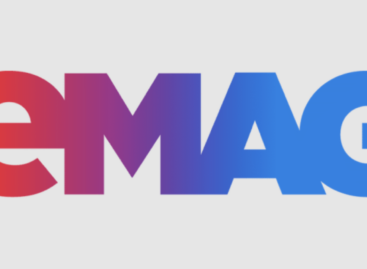Handbook for ethical influencers
Being an influencer is by no means an easy path to success, as being in the spotlight comes with great responsibility, as the latest publication of the National Media and Communications Authority (NMHH) points out. The volume titled “Influencers’ Legal Handbook” was edited by András Koltay, President of the NMHH, and András Tóth, Deputy President of the Hungarian Competition Authority (GVH). The work also includes economic, copyright and media law aspects, and can be a useful guide for all those who want to capitalize on their notoriety. The gap-filling volume was presented on Wednesday, October 15, at the GVH headquarters in Budapest.
 More and more young people are imagining their future as influencers, and it fits into this trend that some of those applying to communication and media studies programs now see online content production as the path to professional fulfillment. Influencers are the brand ambassadors of our time, who can influence the purchasing decisions of the masses. To become an influencer, one does not need special training – in fact, it is questionable whether this activity can be considered a profession in the traditional sense – but addressing followers and playing the role of opinion leader requires special preparation.
More and more young people are imagining their future as influencers, and it fits into this trend that some of those applying to communication and media studies programs now see online content production as the path to professional fulfillment. Influencers are the brand ambassadors of our time, who can influence the purchasing decisions of the masses. To become an influencer, one does not need special training – in fact, it is questionable whether this activity can be considered a profession in the traditional sense – but addressing followers and playing the role of opinion leader requires special preparation.
That is why the volume “Influencers’ Legal Handbook”, published by the NMHH’s Institute of Media Studies as part of the Media Studies Library series, fills a gap. It is edited by András Tóth, Deputy Chairman of the GVH and Chairman of the Competition Council of the authority, and András Koltay, Chairman of the NMHH and the Media Council.
The publication aims to draw attention to the responsibility that comes with marketing based on public recognition. Influencers forge capital from the trust of their followers, and in the process they may face numerous pitfalls, problems and risks, but not only them, but also the actors in the advertising chain who cooperate with them. The questions that need to be answered in relation to their activities could be listed almost endlessly: to what extent is the influencer himself responsible for the content, and to what extent is the platform that publishes it? What fits into the framework of an influencer collaboration and what does not? Who are niche influencers, and what is the situation with kid influencers, since child labor is prohibited? How should someone who has underage followers communicate? Does the influencer’s responsibility depend on the number of followers, and how can one advertise one’s own products ethically?
In addition to answering the most frequently asked questions, the publication also helps readers to get informed with exciting practical examples. The volume devotes an entire chapter to child protection aspects, taking into account not only the regulations of the European Union but also the practices of individual social media platforms.
At the book launch event, Balázs Csaba Rigó highlighted: “Influencer marketing is not just an economic activity, but a relationship of trust between creators and consumers. That is why it is in our common interest that this relationship be transparent, fair and responsible.” The President of the GVH recalled that according to a survey conducted by the national competition authority in 2024, only 20 percent of domestic influencers always comply with the rules on indicating the nature of advertising. Csaba Balázs Rigó emphasized: “Legality is not an optional option, but a fundamental condition for market presence.”
András Koltay said at the event:
“influencers are clearly public figures, as they can influence masses of people, whether in matters concerning public authority or other socially important matters.” The president of the NMHH pointed out that the ability to criticize these online figures is still an open question, as domestic legal practice has not yet given a clear answer to whether influencers fall into the same category as politicians or ordinary people in this regard. András Koltay emphasized: “There are many advantages to having access to a wide range of publicity, but no one can exploit these while simultaneously exempting themselves as private individuals from the adverse consequences that affect public figures.”
At the conference, which was combined with the book launch, following the welcome address and professional presentations, a panel discussion was held on the ethical and legal issues of influencer communication with the participation of teachers, researchers and experts from the National Media and Communications Authority, the Hungarian Competition Authority, the National University of Public Service and the Eötvös Loránd University.
Related news
Related news
PwC Consumer Loyalty Survey now available for pre-order
🎧 Hallgasd a cikket: Lejátszás Szünet Folytatás Leállítás Nyelv: Auto…
Read more >








